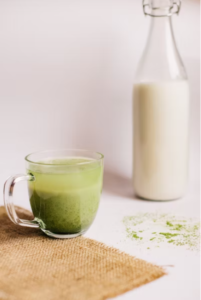Tired of Bathroom Breaks? How Prostate Supplements Can Help

Tired of Bathroom Breaks? How Prostate Supplements Can Help
If you find yourself dashing to the bathroom constantly, struggling with a weak urine flow, or waking up multiple times a night to pee, you’re not alone. These frustrating urinary issues can significantly disrupt your life, impacting sleep, daily activities, and even your confidence. While prostate problems often underlie these symptoms (especially in men as they age), there may be a natural solution: prostate supplements.
But do they really work? This article is your comprehensive guide to understanding the link between prostate health and urination and exploring whether prostate supplements could offer relief. Remember, it’s always crucial to consult your doctor for personalized advice.
Frustrated with Bathroom Breaks? The Truth About Prostate Health and Urination
Your prostate is a small, walnut-shaped gland that plays a vital role in men’s reproductive systems. It sits below your bladder, surrounding the urethra – the tube that carries urine out of your body. As men age, common prostate issues can arise:
- Benign Prostatic Hyperplasia (BPH): Non-cancerous prostate enlargement, extremely common, especially after 50.
- Prostatitis: Prostate inflammation, caused by infection or other factors.
These problems put pressure on the bladder and urethra, leading to:
- Frequent urination: The urge to go even when your bladder isn’t full.
- Urinary urgency: A sudden, desperate need to urinate.
- Weak urine flow: Difficulty starting or maintaining a strong stream.
- Incomplete emptying: The feeling that your bladder isn’t fully empty.
- Dribbling: Leaking urine after you finish.
- Nighttime urination (nocturia): Waking up frequently during the night to pee.
Unlocking the Potential: Can Prostate Supplements Improve Urination?
The idea is that by promoting prostate health, you indirectly improve urinary function. Prostate supplements typically contain plant-based ingredients thought to reduce inflammation, shrink an enlarged prostate, and support overall prostate health. When the prostate is healthier, it may put less pressure on the urethra, potentially improving bothersome urinary symptoms.
Top Prostate-Supporting Ingredients to Look For
- Saw Palmetto: One of the most studied, it may inhibit an enzyme involved in prostate growth and reduce inflammation.
- Beta-sitosterol: A plant-based compound that may ease urinary flow and reduce the amount of urine left in the bladder after urination.
- Pumpkin Seed Oil: Rich in healthy fats and antioxidants, it may support bladder function.
- Pygeum: Derived from the African plum tree, it may have anti-inflammatory effects on the prostate.
- Zinc: This essential mineral is important for prostate cell function and immune health.
- Vitamin D: Emerging research suggests a link between low vitamin D and an increased risk of prostate problems.
Beyond Supplements: Natural Ways to Support Prostate Health and Urination
- Prostate-Friendly Diet: Emphasize fruits, vegetables, whole grains, legumes, nuts, seeds, and fatty fish. Limit red meat, saturated and trans fats, dairy, excess sugar, processed foods, and alcohol.
- Hydration: Drink water consistently but don’t overdo it – being overly hydrated won’t solve prostate problems.
- Stress Management: Stress can worsen urinary symptoms. Find healthy stress-reducing techniques.
- Kegel Exercises: Strengthen the pelvic floor muscles that support bladder control.
Buyer Beware! Not All Prostate Supplements Are Equal
With supplements being less regulated than medication, quality control is crucial. Here’s what to keep in mind:
- Choose Reputable Brands: Do your research and select companies known for quality ingredients and manufacturing practices.
- Read Labels Carefully: Look for the active ingredients we discussed and avoid unnecessary fillers.
- Realistic Expectations: Prostate Supplements aren’t miracle cures and work differently for each person.
How Long Does It Take for Prostate Supplements to Work?
Don’t expect overnight results. It can take several weeks or even months to see noticeable improvement. Consistency is key! Factors affecting how quickly you see results include the severity of your symptoms, supplement quality, and your individual body chemistry.
Talk to Your Doctor
If frequent bathroom trips are disrupting your life, don’t suffer in silence. Talk to your doctor about whether prostate supplements, along with lifestyle changes, could be a good option for you.
5 FAQs drawn from the combined article:

FAQ 1: How do I know if my urinary problems are caused by my prostate?
Answer: Frequent urination, weak flow, difficulty starting urination, and waking up at night to pee can all be signs of prostate problems like BPH or prostatitis. The best way to know for sure is to see your doctor for a diagnosis.
FAQ 2: Can prostate supplements cure my urinary issues?
Answer: While prostate supplements have the potential to help ease urinary symptoms, they’re not a guaranteed cure. They work best when combined with healthy lifestyle changes and may take some time to show effects. It’s important to talk to your doctor about the best treatment plan for you.
FAQ 3: Do all prostate supplements work the same way?
Answer: No. Different prostate supplements may contain varying blends of ingredients, each with potentially different effects. It’s essential to choose one with well-researched ingredients like saw palmetto, beta-sitosterol, pumpkin seed oil, and others mentioned in the article.
FAQ 4: Are prostate supplements safe for everyone?
Answer: While generally considered safe, prostate supplements may interact with certain medications or have side effects for some people. Always talk to your doctor before starting any new supplement, especially if you take medication or have existing health conditions.
FAQ 5: Besides prostate supplements, what else can I do to improve my urinary symptoms?
Answer: A healthy lifestyle is crucial! Focus on a prostate-friendly diet (lots of fruits and veggies, less processed foods), stay hydrated but don’t overdo it, manage stress, and try pelvic floor exercises (Kegels). Your doctor might also have other treatment options to suggest.
Disclaimer:
The information provided in this article is intended for general knowledge and informational purposes only, and does not constitute medical advice. It is essential to consult a qualified healthcare professional for diagnosis and treatment of any health condition. Never disregard professional medical advice or delay in seeking it because of something you have read in this article.

